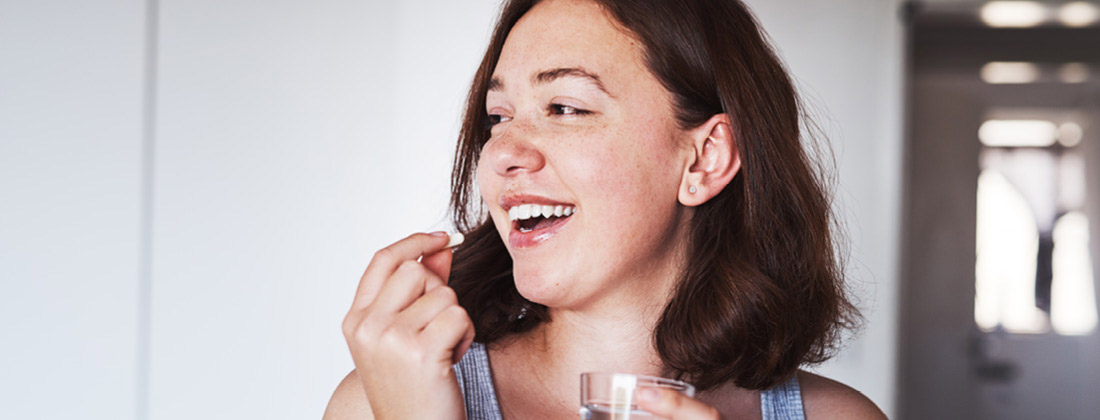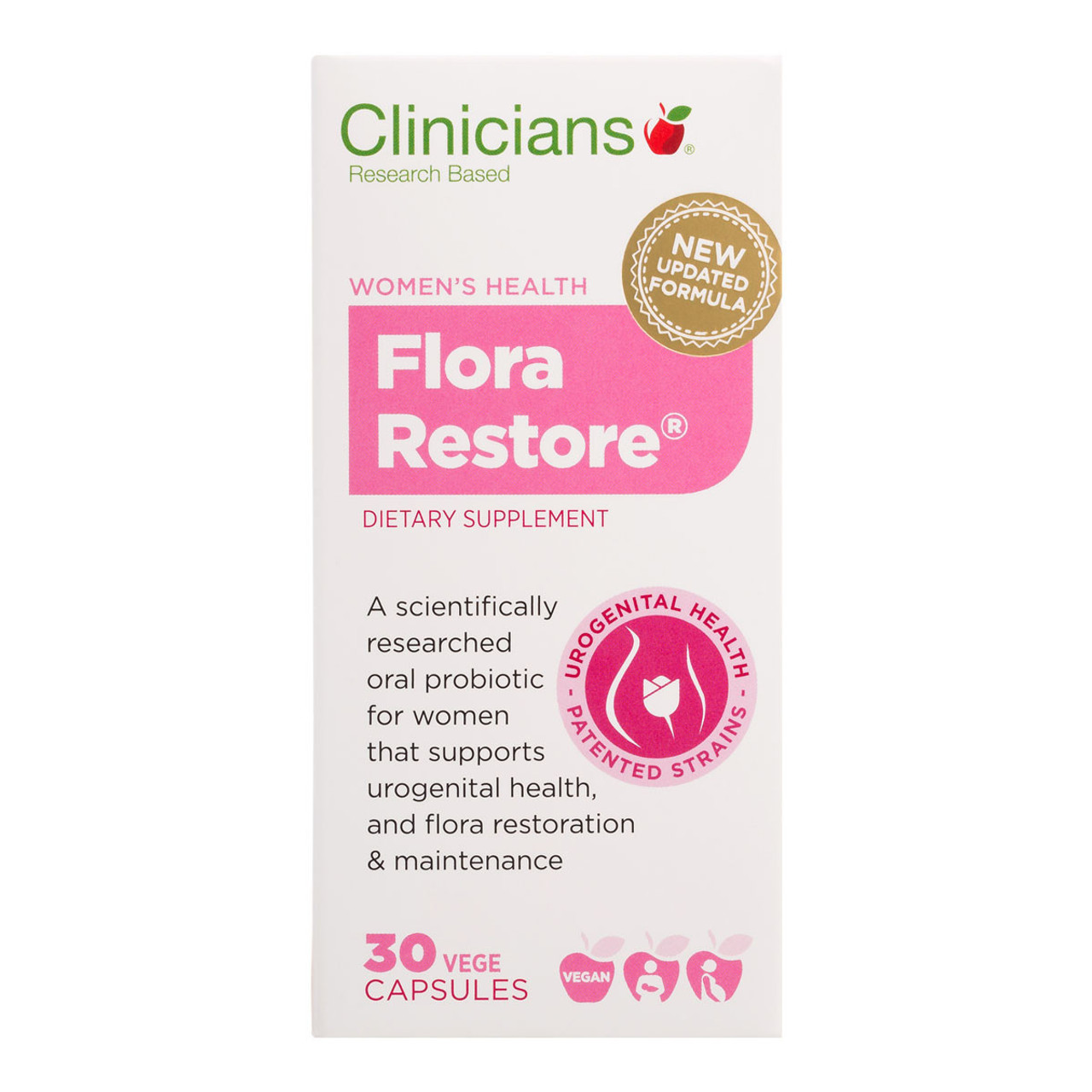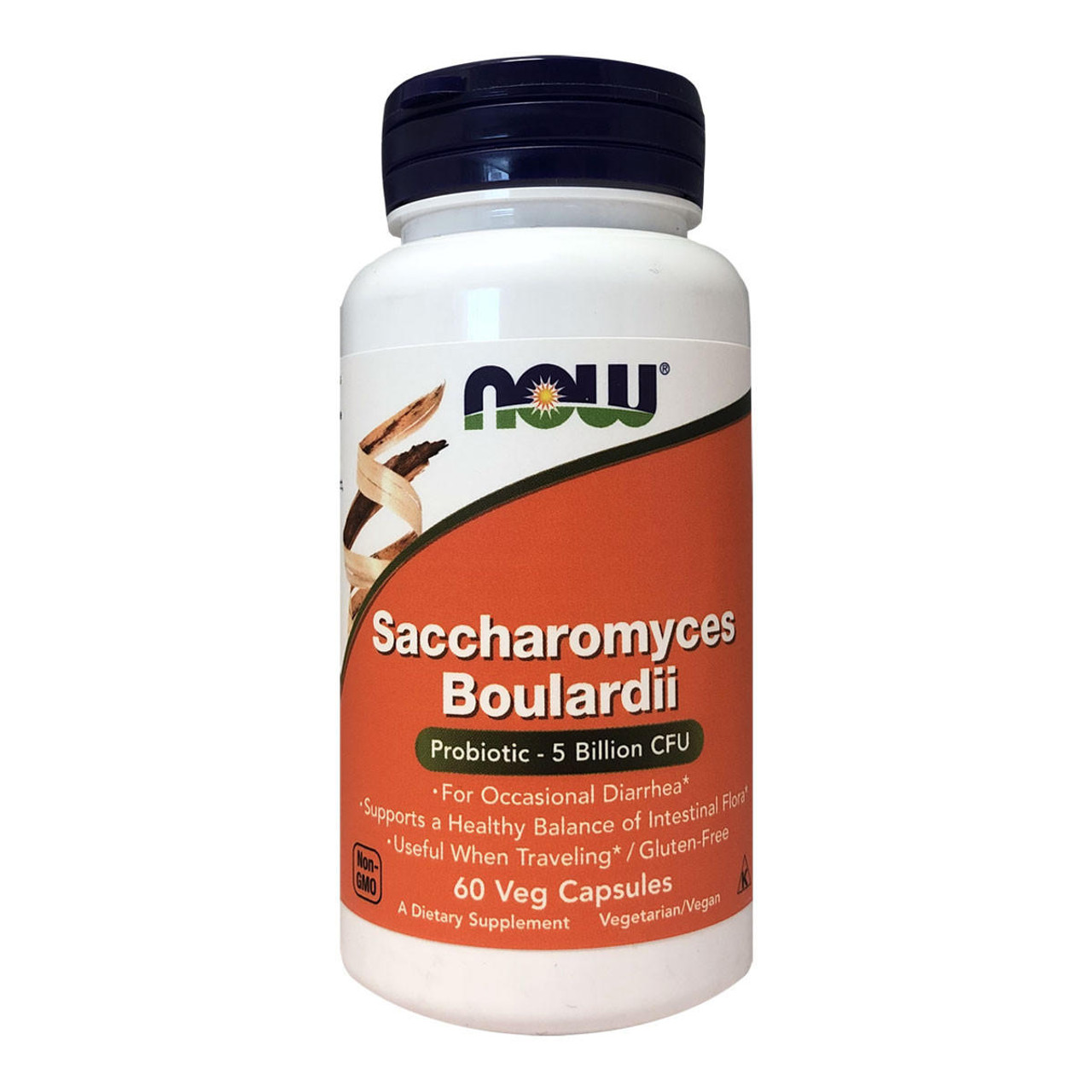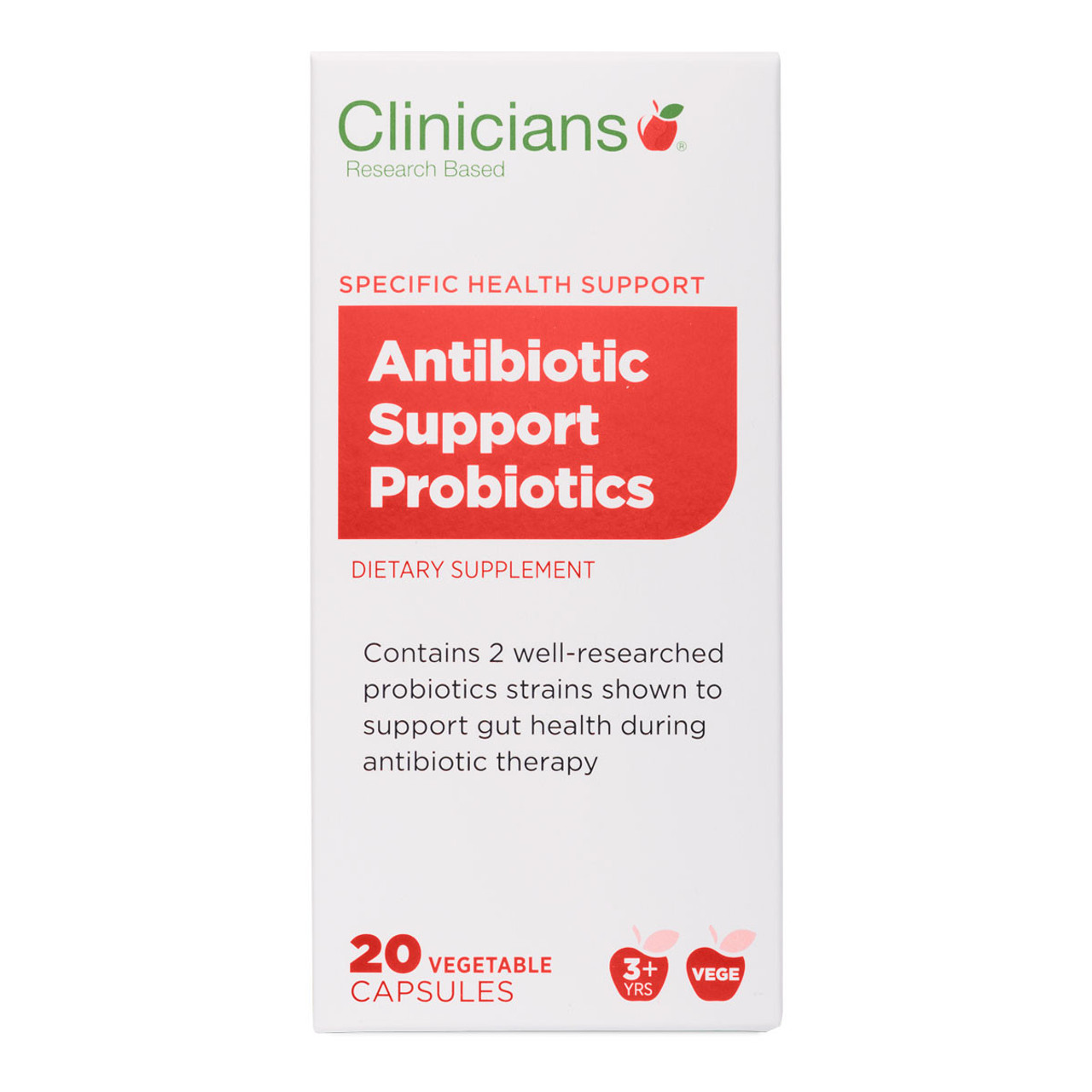
All you ever wanted to know about probiotics, prebiotics, the microbiome, how to use probiotics for gut health and more. Let’s have a look at some of the
supportive effects of probiotics on the microbiome, and reasons to take a probiotic supplement.
What are probiotics?
Probiotics are friendly bacteria that can be taken orally as supplements, fermented foods, or applied to the skin. They support the body’s current colonies of bacteria (microbiome) to do their important work in maintaining a barrier between us and the foreign substances and bugs on the outside. Before we talk more about probiotics, let's have a quick look at the microbiome, and why it’s so important to take care of it.
What’s the microbiome?
From the moment we’re born, we begin populating our digestive system and skin with good bacteria – they make up what we call the ‘microbiome’. We inherit much of our microbiome from our parents, and the environment we grow up in.
The mouth, gut, skin, genitals, and female reproductive tract have their very own colonies of beneficial bacteria (called the microbiome), which carry out many different tasks. Did you know that there’s more bacteria in our microbiome, than cells in our body? We encounter all sorts of bacteria throughout our lives – which all contribute to the health of our microbiome. Taking a probiotic supplement is another way to seed beneficial bacteria and to crowd out any undesirable ones.
What does the microbiome do?
It all depends on where in the body these little friends of ours live.
- The oral microbiome (in the mouth) neutralises acids and bad bacteria that contribute to cavities and bad breath and work to keep the gums healthy.
- The intestine microbiome is responsible for mediating a large part of our immune system, supporting digestion and being a a key player in the formation of neurotransmitters and vitamins.
- The uro-genital microbiome and vaginal microbiome ensures that unwanted bugs or fungi are kept at bay and support natural cleaning processes.
- The skin microbiome helps in maintain the barrier between us and the outer world and keeping our skin healthy.
When the microbiome in any of these areas is compromised, health concerns can arise – so taking care of the microbiome is something that can make a positive difference for our health.
Tips for a healthy microbiome:
The microbiome is one of our first lines of defence against the outside world. You can support it daily in many ways:
- Consuming a wide variety of vegetables and fruit – will encourage a wider variety of good bacterial species in the intestine.
- Eating fiber rich food as fibre is a prebiotic which helps keep probiotics thriving.
- Keep your good bacteria flourishing by watching your alcohol, refined carbs and sugar intake.
- Include fermented foods into your diet – foods like yoghurt, kefir, sauerkraut, kimchi, and pickles. Be mindful of kombucha though, as some can be high in sugar.
- Minimise strong antibacterial cleaners in your home and on your body.
- Take a course of probiotics during, as well as after,antibiotics.
Taking care of your microbiome will equip it to flourish and crowd out the not-so-friendly bugs and environmental pollutants you may encounter in your lifetime.
Probiotic supplements vs food
Technically speaking, probiotics are supplements that have been tested to contain a certain number of live cultures – so they’re great when you’re looking for a specific strain for a certain purpose. When talking about food on the other hand, there are 3 different categories to consider:
- Fermented ingredients – these are foods that are made using a fermentation process, but are then cooked to a high heat, which means that there are no live bacteria left when it is consumed. Sourdough is a good example of this type of food. Although you won't get any live bacteria, you do benefit from an easier to digest product, all thanks to the fermentation process.
- Fermented foods – these are foods that do contain live cultures, but the amount and type is not usually quantified. Most traditional cultures included some fermented foods with their meals daily, and now these all-important foods are making a welcome comeback to our plates.
- What are fortified probiotic foods?– these are foods that have had live cultures added to them to support health. Many store-bought yoghurts have live cultures added to them as the naturally occurring cultures don’t survive processing.
There is a time and place for each of these options. In general, aim to incorporate some fermented foods or a probiotic food supplement into your regular diet. However, there are times when a specific strain of live culture is preferred, and this is when a probiotic supplement is ideal.
Keen to make your own fermented foods? Check out our
Fermentation Kits & Accessories
Why do we need probiotics?
If your microbiome has been disturbed by travel, undesirable bugs, worms, antibiotics, or some foods, you may experience bad breath, discomfort with digestion, unsatisfying stools, reoccurring ills and chills, skin concerns, and in some cases a yeast imbalance. Overtime, changes in the gut microbiome can impact on nutrition status, mood, energy, and sleep. It can take some time and dietary tweaks to support your microbiome, and this is where probiotic supplements really shine.
Read more about the different strains: Good for your gut! The importance of probiotics for overall health
Benefits of probiotics
The health benefits of probiotic supplements are well established by science. They have a very special role to play in supporting our body:
- Digestive health – from the mouth all the way to the other end, probiotics can crowd out the bad bugs, and support the establishment of health supporting colonies.
- Immune health –probiotics support the immune health of the whole family and can address those pesky reoccurring ills and chills so common with young children at day care and school.
- Vaginal and Women’s Health – taken orally probiotics can support the healthy balance of this delicate area.
- Skin health – if your skin barrier has been compromised, try skincare containing probiotics to support the natural rejuvenation process.
Probiotics and digestion go hand in hand to ensure all of your nutrients are properly broken down and absorbed – which in turn gives life and vitality to every cell in the body. This is why many people say that good health begins in the gut - Feeling good? It starts in your gut.
Top probiotic supplements
Many probiotics are now shelf stable, with dairy free options for those needing to avoid lactose and casein. Probiotics supplements come in probiotic capsules, powders, and drinks to suit your personal preference.
Best concentrated probiotic: Inner Health Advanced Spectrum Probiotic
This is a diverse blend of probiotics and nutrients, selected and clinicially studied to support gut health. 9 different species of gut loving bacteria provide 36 billion colonising units, along with vitamin D, B1 & B2. This probiotic is a highly concentrated supplement to help your microbiome flourish and support overall health. This probiotic is also shelf stable, so no refrigeration required.
| Shop Inner Health Advanced Spectrum Probiotic → |
Best daily probiotic: BePure Two Probiotic
Suitable for the whole family from six years and up, this is a full spectrum probiotic with 19 strains. A unique capsule allows for the slow release of the bacteria – ensuring the probiotics reach their intended destination. Address the health of your microbiome, including comfortable digestion, regular bowel motions, support immune health, nutrient absorption, and enjoy a balanced mood.
| Shop BePure Two Probiotic → |
Best probiotic for soothing gut: Lifestream Ultimate Gut Soothe
We absolutely love this gut calming supplement from Lifestream – it contains everything you need to support your gut if it’s feeling the aftereffects of food that didn’t agree with you. With prebiotic fibre to feed the good bacteria, probiotics to repopulate, and aloe vera, slippery elm, liquorice, and turmeric to calm an upset tummy.
| Shop Lifestream Ultimate Gut Soothe → |
Best probiotic for baby: Radiance Probiotics Baby Drops
These gut loving drops from Radiance will support your baby’s developing microbiome. The Bifidobacterium Lactis BB12 is scientifically researched to support babies post caesarean, calm tummy troubles, and support their immune systems. The versatile drops can be given directly, added to milk or formula, or put onto the nipple before breast feeding.
| Shop Radiance Probiotics Baby Drops → |
Best women’s probiotic: Eve Wellness Queen V
Are you wanting a probiotic to support urogenital and vaginal health, as well as gut and immune health? Look no further than this all-in-one probiotic supplement that has been especially formulated to support the unique needs of the female body. Say goodbye to digestive troubles, and hello to a happy, well-functioning gut.
| Shop Eve Wellness Queen V → |
Best probiotic for vaginal health: Clinicians Flora Restore
This probiotic contains Lactobacillus rhamnosus and Lactobacillus reuterito support the healthy balance of good bacteria in and around the intimate area. Many women stand by this probiotic supplement as a trusty ally to support bladder and vaginal balance. This product can be taken orally to support a healthy immune defence in these areas.
| Shop Clinicians Flora Restore → |
For bowel immune support: NOW Foods Saccharomyces boulardii
This is one for the home care kit, keep a bottle of saccharomyces on hand to support digestive immune health. This can be supportive after travel, trying new foods, or eating something that contained a bad bug or two. Saccharomyces can support balance of bacteria and support healthy, normal bowel movements.
| Shop NOW Food Saccharomyces Boulardii → |
Antibiotic support: Clinicians Antibiotic Support Probiotics
Antibiotics are a valuable tool, but they can affect the good bugs in your microbiome too. Luckily you can support your microbiome to bounce back afterwards with this handy shelf-stable probiotic from Clinicians. You can choose to take them during or after your course of antibiotics, or ideally both.
| Shop Clinicians Antibiotics Support Probiotics → |
Frequently asked questions
Can probiotics cause stomach pain and bloating?
If you take them as directed, you’re not likely to experience unwanted effects from taking a probiotic. In the initial stages of taking a probiotic some people may notice changes in bowel habits or mild gas, but this will be temporary and should not be painful. As always, if you notice any unwanted effects that you believe may be related to a new supplement, please stop taking it and consult a health professional.
Can you get diarrhoea from probiotics?
Probiotics are generally well tolerated and it’s not common to experience unwanted effects from them, but some people do notice changes in their bowel habits initially. If you do have sensitive digestion and would like peace of mind, you may like to start taking your probiotic pills gradually, building up to the full dose over the first few days.
The best probiotics for your health
Research into the human body’s microbiome is ongoing, with many fascinating discoveries being made all the time. These findings are used to formulate unique probiotic supplements to support your health and wellbeing. At HealthPost, we aim to support your health and wellbeing with probiotics that work for their intended purpose. If you’re not sure which one is right for you, then please reach out to our friendly customer care team.
| Shop all probiotics → |









